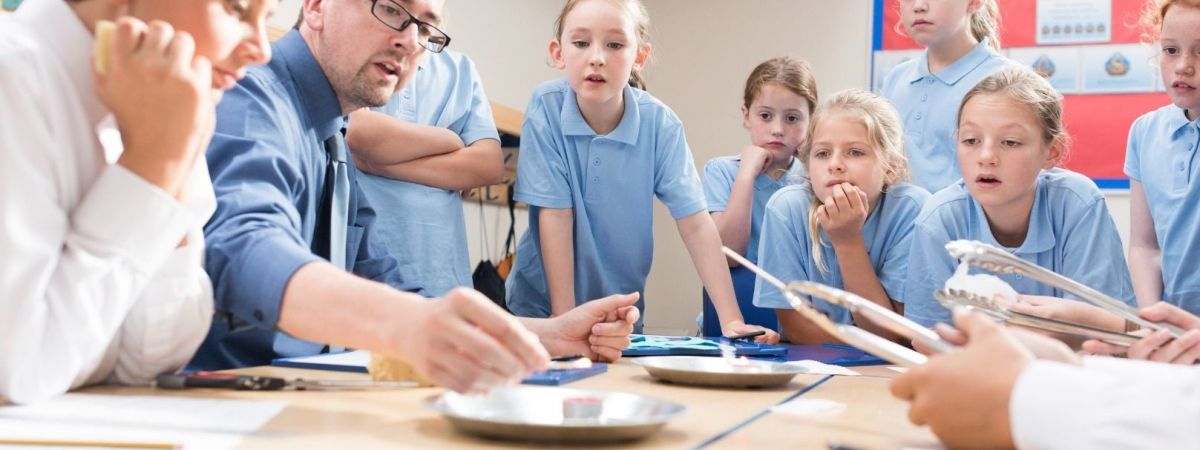Why we’re focusing on the History of Knowledge
Our Director Mark Lehain has written this blog to explain the thinking behind our new project…
I’ve always been a believer in the great British holiday. The wonders of the Peak District, the tranquillity of Northumberland, and the beauty of the beaches in Devon. Sometimes nothing is better than getting in the car and driving a few hours to somewhere gorgeous in the UK. Airplanes? Trips abroad? Who needs them?!
However, I was taken well out of my comfort zone last month when I went abroad twice in a week: first to the UAE, then to Portugal.
These weren’t solo jaunts to sunny climes to get a tan. (And I certainly wasn’t taking my kids out of school for a term-time holiday!) In both cases I was lucky enough to be attending international education conferences – first the Varkey Foundation’s Global Education and Skills Forum in Dubai, and then the International Summit on the Teaching Profession in Lisbon.
Both events gave me lots of time to talk with people from both the UK and around the world about education. I came into contact with many I would never otherwise have had the chance to. I was repeatedly struck at how similar people’s ultimate goal was – improving the lives of as many children as possible through education – but also how different the approaches taken elsewhere are, especially around the “what” and “how” of schooling.
In this country, the curriculum conversation is spirited, controversial and constant. One of PTE’s core beliefs is the power and importance of a “knowledge-rich” curriculum for all. We do recognise though that there is a passionate debate about this, and there are great people and schools with very different views right across the sector.
Some, such as the brilliant Mary Bousted, say that the skills/knowledge debate is “a false divide”, but it only takes one look at education forums like Twitter and the TES to see advocates on both sides engaging in regular debate.
Talking to fellow educationalists at the conferences really brought home to me that that this isn’t the case elsewhere. Most people I came into contact with were surprised that we were even having a debate, and explained that their focus was on moving to, or embedding further, programmes based on generic cross-curricular skills and preparing kids for the jobs of the future. From my debate in Dubai, to the whole of the International Summit on the Teaching Profession, this was the theme of the conversation.
It’s left me thinking: why are things so different in England? Why have so many of us got off the 21st Century Skills bandwagon and started debating alternatives?
I’ve had my own personal journey, from including “Google Time” project based learning into the initial Bedford Free School curriculum, to embedding a knowledge-rich curriculum when I left last summer. But that’s just me, and I didn’t do it in isolation. Thousands and thousands of teachers and school leaders are now making the same switch, for various reasons and motivations.
At PTE we’ve spent, and will continue to spend, a lot of time looking at this. We released our Question of Knowledge pamphlet last year, and our first ever conference the month before had an extended debate on knowledge in the curriculum. Last month we hosted an education forum event on the issue (the audio recording is here), and next month we’re hosting a half-day conference in the midlands titled ‘What does a knowledge-rich school look like?’ (tickets are here). In the longer-term, we’re doing a project titled The Wonder Years that will look at KS2 and KS3 and how to best harness those years in the pursuit of knowledge.
Working on these has made it very apparent to me that the knowledge counter-reformation movement and debate is so much bigger here than elsewhere. And we think that the reasons for thisrun deep – it’s not just because Michael Gove and Nick Gibb were in the DfE together in 2010, they were building on foundations that came before them.
That’s why I’m excited to announce our new project, titled A Brief History of the Knowledge Curriculum in England.
As a maths teacher by trade, I know I’ll be getting a few ‘told you so’s from my humanities colleagues when I say this, but the history of the knowledge movement is so crucial to everything we seek to discuss today. We wouldn’t ask our students to discuss a political or social movement without giving them the context required to understand its origins, and why it took the path it went down.
Why should we be any different? How can we truly understand a movement that so many of us have ended up involved with if we don’t know how we got there?
That’s what this project will seek to illuminate later this year. And when the time comes, maybe we’ll launch it at some far-flung education conference as a last stand for the knowledge movement in a country consumed by 21st Century Skills. Then again, I’d much rather we did it close to home! Oh, and my next trip with PTE is to Folkstone…
